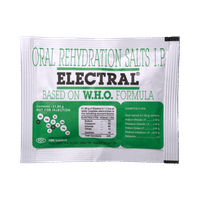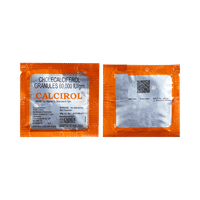Rs.124for 1 tube(s) (5 gm Eye Ointment each)
food interaction for Polymed B
alcohol interaction for Polymed B
pregnancy interaction for Polymed B
lactation interaction for Polymed B
food
alcohol
pregnancy
lactation
No interaction found/established
No interaction found/established
Information regarding the use of Polymed B Eye Ointment during pregnancy is not available. Please consult your doctor.
CONSULT YOUR DOCTOR
Information regarding the use of Polymed B Eye Ointment during breastfeeding is not available. Please consult your doctor.
CONSULT YOUR DOCTOR
SALT INFORMATION FOR Polymed B
Polymyxin B(5000IU)
Uses
Polymyxin B is used in the treatment of severe bacterial infections. It is used to treat certain types of serious infections which are not responding to other antibiotics.
How it works
Polymyxin B is an antibiotic. It kills bacteria by destroying the bacterial cell membrane.
Common side effects
Burning sensation, Eye irritation
Chloramphenicol(10mg)
Uses
Chloramphenicol is used in the treatment of bacterial infections. It is used to treat certain types of serious infections caused by bacteria when other antibiotics cannot be used.
How it works
Chloramphenicol is an antibiotic which stops the growth of bacteria. It does so by preventing synthesis of essential proteins required by bacteria to carry out vital functions. This does not directly kill the bacteria, but prevents them from increasing in numbers, and eventually clears up the infection.
Common side effects
Vomiting, Nausea, Diarrhea, Glossitis (tongue inflammation), Hypersensitivity, Bone marrow depression, Aplastic anemia, Increased bleeding time, Optic neuritis, Ototoxicity, Acidotic cardiovascular collapse, Stomatitis (Inflammation of the mouth), Enterocolitis, Gray baby syndrome, Application site reactions (burning, irritation, itching and redness), Blood dyscrasias, Headache, Depression, Delirium (acute confusional state), Jarisch-Herxheimer reaction, Superinfection
Betamethasone(1mg)
Uses
Betamethasone is used in the treatment of allergic conditions.
How it works
Betamethasone is a steroid which works by blocking the production of certain chemical messengers in the body that cause inflammation (redness and swelling) and allergies.
Common side effects
Weight gain, Mood changes, Behavioral changes, Skin infection, Hair follicle inflammation, Itching, Burning sensation, Cataract, Increased glucose level in blood, Bruising, Headache, Dizziness, Weakness, Fatigue, Visual disturbance, Nausea, Altered menstrual cycle, Impaired wound healing, Dryness, Stretch marks, Hypertrichosis (excessive hair growth), Skin atrophy, Miliaria (sweat rash), Perioral dermatitis, Allergic contact dermatitis, Hypopigmentation, Local site pain, Angioedema (swelling of deeper layers of skin), Decreased potassium level in blood, Hypersensitivity, Blindness, Pulmonary edema, Rebound effect, Cushing syndrome, Glycosuria, Glaucoma, Slow heart rate, Cardiac arrest, Arrhythmia (irregular heartbeats), Cushingoid syndrome, Perforated peptic ulcer, Pathologic fracture of long bones, Hypothalamic-pituitary-adrenal axis suppression, Charcot-like arthropathy, Steroid myopathy
SUBSTITUTES FOR Polymed B
No substitutes foundExpert advice FOR Polymed B
- Polymyxin B treats serious bacterial infections that have not responded to treatment with other antibiotics.
- It is given by injection or drip (infusion) into a vein usually over 30-60 minutes.
- Finish the prescribed course, even if you start to feel better. Stopping it early may make the infection come back and harder to treat.
- Diarrhea may occur as a side effect. Inform your doctor if ti doesn’t stop or if you find blood in your stools.
- Your doctor may get regular blood tests done to monitor the level of the medicine in your blood.
Frequently asked questions FOR Polymed B
Polymyxin B
Q. What is Polymyxin B? What is it used for?
Polymyxin B is an antibiotic that fights bacteria. It is used to treat severe infections of the skin, soft tissues, heart and blood. It is commonly used to treat critically ill patients who are hospitalized.
Q. How is Polymyxin B administered?
Polymyxin B should be administered under the supervision of a trained healthcare professional or a doctor only and should not be self-administered. The dose will depend on the condition you are being treated for and will be decided by your doctor. Follow your doctor’s instructions carefully to get maximum benefit from Polymyxin B.
Q. Is Polymyxin B safe?
Polymyxin B is safe if used in the dose and duration advised by your doctor. Take it exactly as directed and do not skip any dose. Follow your doctor's instructions carefully and let your doctor know if any of the side effects bother you.
Chloramphenicol
Q. How long does Chloramphenicol takes to work?
Usually, Chloramphenicol starts working soon after taking it. However, it may take some days to kill all the harmful bacteria and make you feel better.
Q. What if I don't get better after using Chloramphenicol?
Inform your doctor if you don't feel better after finishing the full course of treatment. Also, inform him if your symptoms are getting worse while using this medicine.
Q. Can I stop taking Chloramphenicol when my symptoms are relieved?
No, do not stop taking Chloramphenicol and complete the full course of treatment even if you feel better. Your symptoms may improve before the infection is completely cured.
Betamethasone
Q. How does Betamethasone work?
Betamethasone works by decreasing the inflammation caused by allergies. It reduces inflammation by blocking the release of certain natural substances that cause allergic symptoms such as swelling, redness, and pain.
Q. Is Betamethasone safe to use?
Betamethasone is safe to use when used in the dose and duration advised by your doctor. You should not take this medicine if you are allergic to Betamethasone or any of the other ingredients of this medicine. Furthermore, you should not take Betamethasone if you have an infection and have not yet started medicine (e.g., antibiotics) to treat it.
Q. Does Betamethasone cause hair loss?
No, Betamethasone is not known to cause hair loss. In fact, it may cause an increase in body hair growth (especially in females) on long-term use. Talk to your doctor if you get excessive hair growth on your body while taking Betamethasone.






















